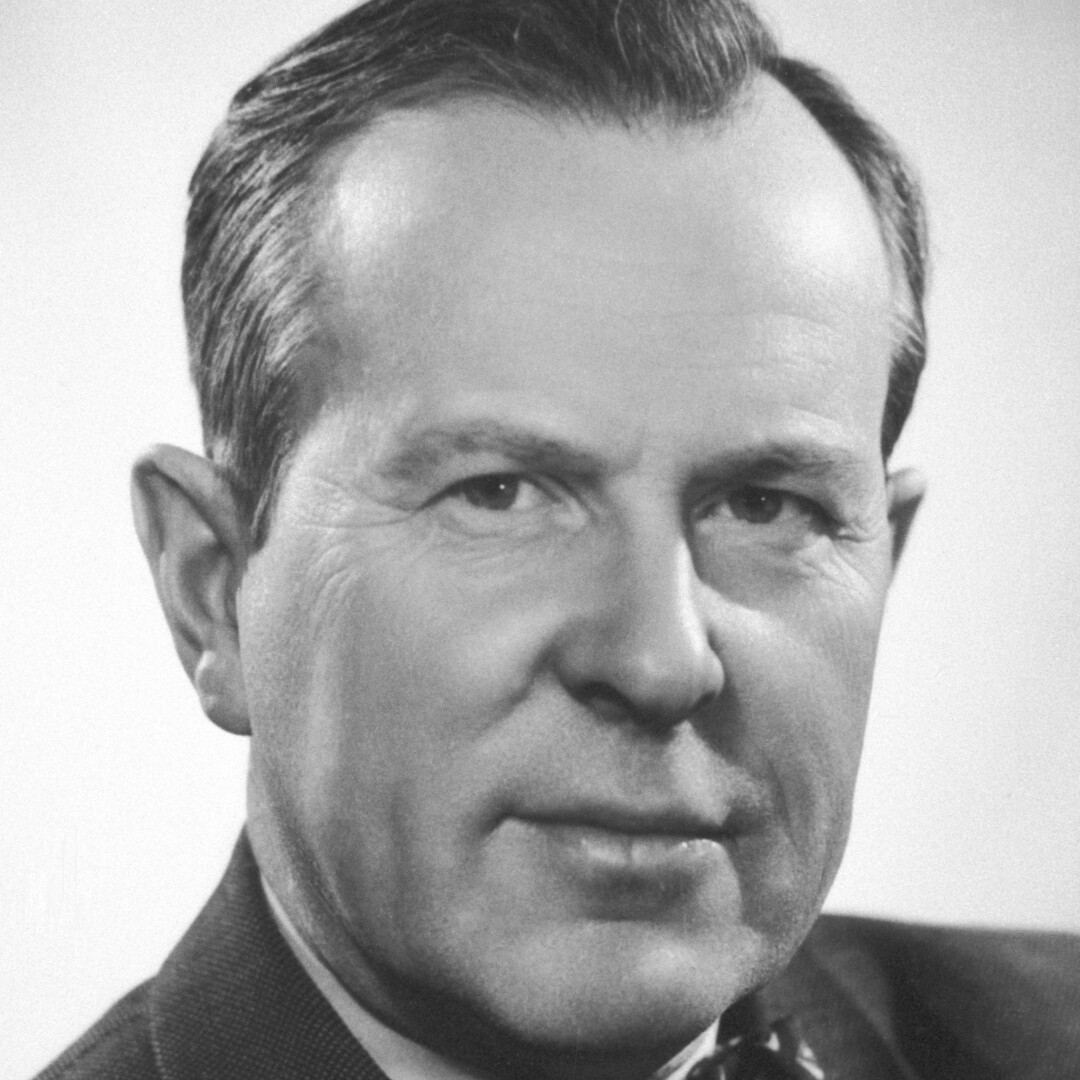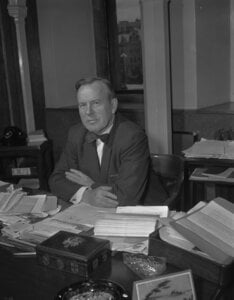Lester Bowles Pearson
Speed read
Lester Bowles Pearson was awarded the Nobel Peace Prize for his crucial contribution to the deployment of a United Nations Emergency Force in the wake of the Suez Crisis.

Full name: Lester Bowles Pearson
Born: 23 April 1897, Toronto, Canada
Died: 27 December 1972, Ottawa, Canada
Date awarded: 3 October 1957
UN forces for peace
Lester Pearson worked for the Canadian Department of External Affairs. As a diplomat, he witnessed the collapse of the League of Nations in the 1930s and the outbreak of WWII. During the war, he took part in preparations to establish the UN. He was favoured to become the UN’s first secretary-general, but the Soviets opposed him on the grounds that he was too pro-British. In 1952 Pearson became president of the UN General Assembly. Four years later, Great Britain, France and Israel attacked Egypt after the country nationalised the Suez Canal. The USA was not informed, and the Soviet Union threatened to use atomic weapons against the aggressors. The “Suez Crisis” was resolved when Lester Pearson gained support for a plan to send UN forces into the area to separate the warring parties.
"Lester Pearson’s vision is not that of a dreamer. He looks at life and the conditions of the world as they are, basing his conclusions on realities."
Gunnar Jahn, Presentation Speech, 11 December 1957.
Almost secretary-general of the UN
Pearson was serving as Canadian ambassador to the USA when the UN was founded in San Francisco in 1945. He tried to prevent the major powers from obtaining veto rights in the Security Council, where key UN decisions would be taken. Although his efforts were unsuccessful, many delegates actively supported him for the first UN secretary-general. Despite a majority in favour of Pearson, the Soviet Union threatened to veto any candidate from the “Anglo-American block.” Lester Pearson was therefore passed over in favour of the compromise candidate, Norwegian Minister of Foreign Affairs Trygve Lie.
"The nation at war now means literally all the people at war, and it can add new difficulties to the making or even the maintenance of peace."
Lester Pearson, Nobel Prize lecture, 11 December 1957.

The first UN military forces
When Great Britain, France and Israel attacked Egypt in the fall of 1956, UN Secretary-General Dag Hammarskjöld tried to mediate, but the French and British used their vetoes in the Security Council to counter all proposals. Pearson then proposed that the UN send its own forces to separate the Egyptians and Israelis. The forces would also take control of regions occupied by the French and British. Pearson’s proposal was unanimously adopted by the Security Council. The first UN military forces consisted of soldiers from Colombia, Denmark, Finland, India, Indonesia, Norway, Sweden and Yugoslavia.
"Lester Pearson is a big man from a country that is a small power."
US newspaper The New York Times, May 1956.
Learn more
For four decades Lester Bowles Pearson has been noted for his diplomatic sensitivity, his political acumen, and his personal popularity ...
Disclaimer: Every effort has been made by the publisher to credit organisations and individuals with regard to the supply of photographs. Please notify the publishers regarding corrections.
Nobel Prizes and laureates
Six prizes were awarded for achievements that have conferred the greatest benefit to humankind. The 14 laureates' work and discoveries range from quantum tunnelling to promoting democratic rights.
See them all presented here.
